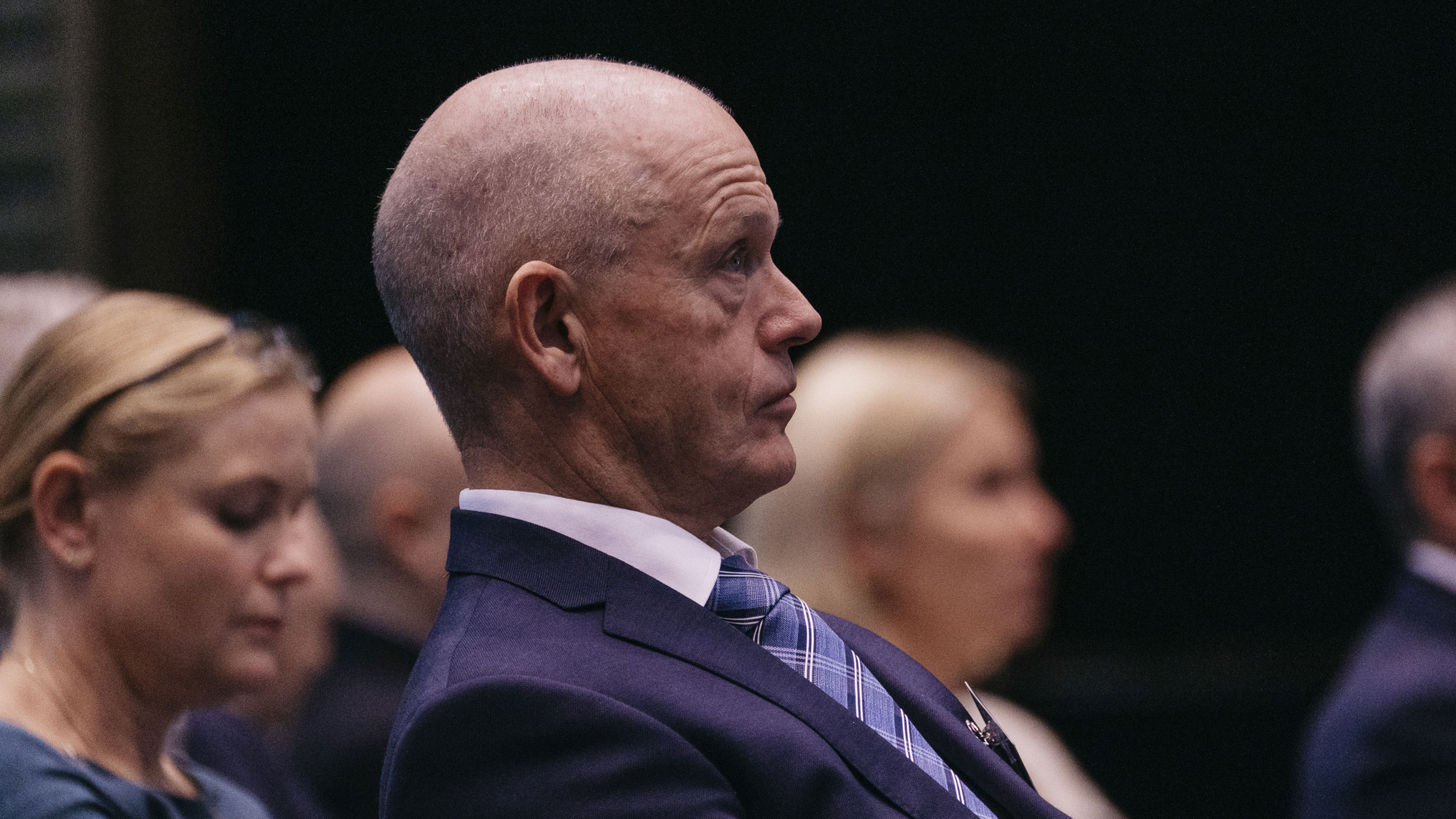Taking responsibility for change
 Photo: Tommy Ellingsen
Photo: Tommy Ellingsen
The future is about being able to keep several thoughts in your head at the same time, says Ståle Kyllingstad, chair of the Federation of Norwegian Industries and founder of IKM. That is something he is pretty used to doing.
“I’m convinced we’ll be producing oil and gas throughout this century,” Kyllingstad says. “But having put NOK 12 000 billion in the bank from hydrocarbon extraction must have consequences. So we in Norway have a special responsibility.”
The words quickly flow faster when he is asked about the future for the petroleum industry. He does not believe in any abrupt downturn in production – rather the opposite.
“We currently have 93 fields on stream off Norway, and I predict we’ll be up to 110, perhaps 115, before that goes into reverse.”
He also believes that continued growth is appropriate, and does not accept that he is failing to take the environmental challenges and the UN’s code red seriously.
“So many facts disappear in this debate,” he says, and points to the new Baltic Pipe facility intended to supply Poland with Norwegian gas.
“This project will allow the Poles to reduce emissions by 50 million tonnes of CO2 per year – more than Norway’s annual total. We hear little about that, which is a pity.”
Checking out a changing industry
In a series of articles we will provide insights into some of the demands on and expectations for Norway’s largest and most profitable industry. These signals come from different quarters – politicians, climate activists, capital managers and employees.
Footprint
Kyllingstad describes an industry which is working flat out to reduce its carbon footprint. “We must accept our responsibility and help the rest of the world,” he says.
He is therefore pleased with the new coalition government’s policy platform, and feels it outlines a sensible policy with stricter environmental standards and a gradual rise in CO2 tax.
“Increasing the latter is a good and necessary step,” he affirms. “It will force the industry to come up with solutions for reducing emissions.”
Optimistic
The trend he now sees makes Kyllingstad optimistic. He points first and foremost to offshore wind power and CCS as areas which have come far, and which he has most faith in.
“It’s important to get going with CCS in Norway, since this could be a big part of the solution to a global problem.”
He notes that the country has the infrastructure in place and substantial expertise from the oil and gas sector, which means that CCS could be profitable, employ many and make a very important environmental contribution.
Wind
“We must devote a lot of time, resources and money to developing offshore wind power, where much is to be gained both financially and environmentally,” Kyllingstad adds.
He believes in this becoming potentially a substantial industry in Norway, and in many different players and solutions on tomorrow’s NCS.
While noting that the big traditional oil companies are moving out of the Norwegian oil sector, he sees a number of new energy companies on the way in.
“That’s exciting, but it’s more important than ever that we now have a common set of regulations to guide us. That’s the basis, it must be put in place.
“The PSA has done a good job of organising the NCS and setting the terms for safety. It must continue doing that. We as an industry can’t be burdened with several regulators.
“If necessary, the PSA should rather change its name to the Norwegian Energy Safety Authority or something along those lines.”
“The PSA has done a good job of organising the NCS and setting the terms for safety,” says Ståle Kyllingstad. “It must continue doing that. We as an industry can’t be burdened with several regulators.”
Upheaval
Where his own IKM group is concerned, Kyllingstad is reasonably satisfied. He sees that the supplier sector faces an upheaval, but is optimistic.
“The Norwegian oil industry will be gradually cut back before flowering again when we get properly going with offshore wind power and CCS,” he says.
“But we’re in a time of change, and the level of activity will be lower for a period.”
Kyllingstad believes change, new players and running down will have a positive impact on companies like his. He does not think particular areas will be especially profitable, but believes that the ability to offer a breadth of services will be favourable.
Predicting
Kyllingstad has no problems in making energy predictions, and notes that the world currently consumes about 99 million barrels of oil per day. That will be down to 40 in two decades.
“We’re being measured today and tomorrow by point emissions. Change will be driven by consumers in cooperation with the politicians and the industry.
“So it’s quite clear that we’ll see new green energy forms flourish and expand strongly. And I believe nuclear power is set for a renaissance in countries like Sweden and France.”
Dialogue article
This article has been taken from our Dialogue journal, which aims to encourage debate on some of the most relevant issues and challenges faced by the industry in the safety area.